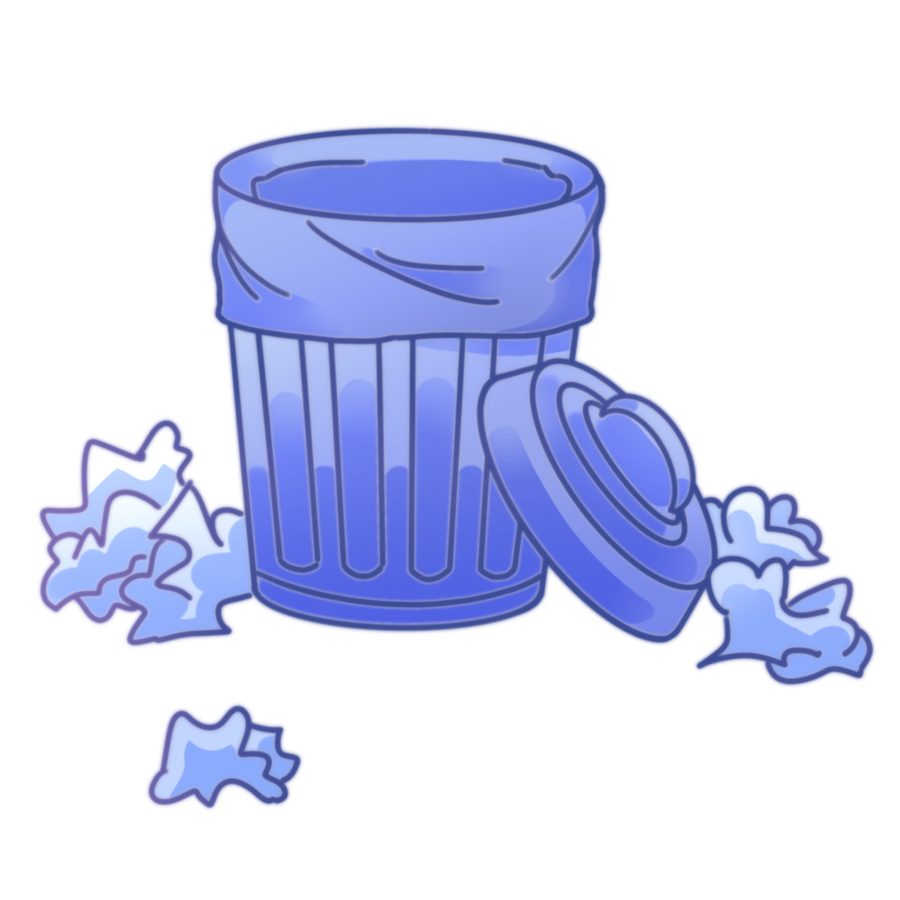When I look around the campus after lunch, I always see half-finished school lunches on ketchup-stained tables and random bruised apples rolling around the quad, scattered within the fall leaves.
There is also plenty of litter on the concrete, and random, differing trash around bins where they shouldn’t be in.
Students seem to regularly disregard rules about disposing of their trash, and there seems to be little administrative enforcement of trash clean-up policies.
Our custodians have enough responsibilities without having to pick up trash. What we need is stricter, better-enforced trash policies.
The current trash policy is that school officials expect students to pick up their trash and put it in the right bins to keep the school pristine.
But this is an unspoken, moral rule that many students ignore.
Throughout elementary and middle school, we are taught to properly dispose of our trash by yard duty volunteers, teachers and student-led committees that stress the importance of good trash policies.
But now, in high school, adults assume we are responsible enough to do the right thing and the trash rules are much more loosely enforced.
In my three years at Paly, I have only seen a couple of teachers and Principal Brent Kline attempting to enforce trash policies, but there is a clear lack of oversight in reminding students to be more responsible when it comes to keeping the campus litter-free.
Evidenced by the litter scattered around campus after lunch, however, high schoolers have yet to demonstrate that they are capable of proper clean-up.
Part of this comes from the fact that our student body is mostly privileged, which often brings a mindset that makes students think it is OK to leave out garbage because someone else is paid to clean it up later.
But this upper-class privilege and ignorant mindset should not be an excuse to disregard the importance of maintaining a clean campus, as it is a general obligation of the public to clean up after themselves.
This mindset also leaves little room for helping custodians and leads to a lack of accountability.
In addition to students’ privileged self-perceptions and a lax enforcement of policy, the school has insufficient trash bins on campus.
The few available are often far away from each other and constantly changing in location.
Not only are they far apart and hard to find, the three main types of bins — recycling, compost, and trash — are usually separated across campus instead of being grouped together.
To avoid constantly seeing wind-scattered pieces of trash, there is a clear need for more trash cans on campus and to have three types of trash cans in one place and reduce the inconvenience of throwing trash away for students.
This would reduce the amount of litter on the ground and reduce the time-consuming and tiring search for a place to put garbage.
Although more trash cans means more trash bags and thus more plastic waste, trash left around campus would be reduced, and students would have an easier time finding proper waste disposal.
Administrators should also hold students more accountable for picking up their mess by dedicating times on teaching how to properly throw away the trash.
If the right steps are taken to properly enforce and motivate students to make a cleaner campus, the constant sight of dirty garbage skidding across the asphalt during lunch will become a memory forgotten and make Paly’s campus as outstanding as its reputation.


